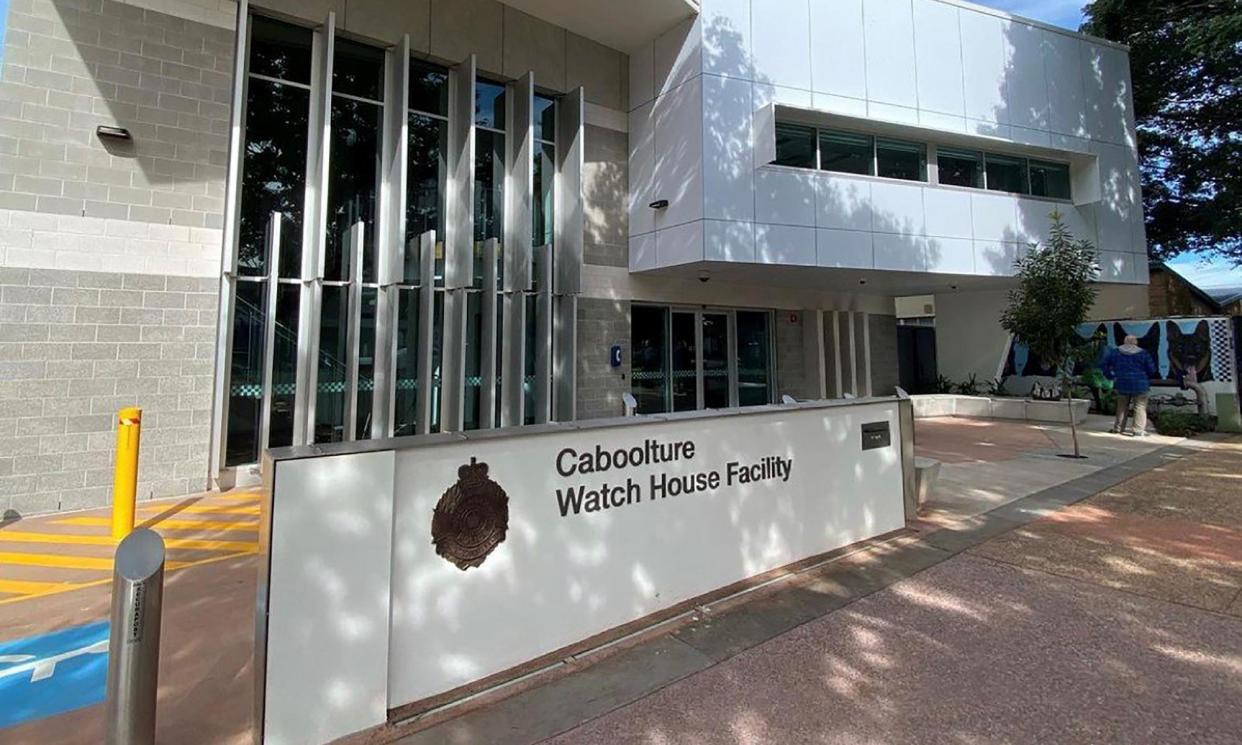Queensland government accused of failing to provide adequate schooling to locked up children

Children held in the “youth hub” of a Queensland police watch house are receiving less than an hour of daily schooling on average each weekday, while those held in youth detention centres are receiving an average of just two to three hours of classes.
Data from a question on notice by the shadow attorney general, Tim Nicholls, revealed children within the Caboolture watch house education support hub received less than 44 minutes of schooling each weekday on average from 22 January to 15 March this year.
Children detained in Queensland police watch houses generally do not receive any schooling. The only watch house in the state where children received schooling by department of education staff was Caboolture. The data only captured children who had been detained for a full school week.
In youth detention centres, children who attended learning centres received some schooling. However, children often missed classes due to other appointments.
Related: Queensland LNP vows to ditch ‘detention as last resort’ approach to youth crime
The chief executive of the Youth Advocacy Centre, Katherine Hayes, said the data emphasised “how watch houses are not suitable for children”.
Hayes said there were about 70 children in Queensland watch houses, with 20 of those in Caboolture.
“Children are not getting education unless they happen to be in the youth hub, in which case they’re getting less than an hour, which is meaningless,” Hayes told Guardian Australia.
In her response to Nicholls’ question on notice, the youth justice and education minister, Di Farmer, said the department “has developed a range of resources to provide meaningful education, literacy and numeracy that young people can complete while they are in a watch house”.
A second question on notice from Nicholls also revealed the daily contact hours by education staff for those who attended classes at Cleveland, Brisbane and West Moreton Bay youth detention centres was between two and three hours on average.
The average daily contact hours were 2.29 at Brisbane youth detention centre, 2.69 at Cleveland and 3.3 hours at West Moreton over the periods with available data.
The lowest daily contact hours on record at Brisbane youth detention centre was zero hours during a four-day Covid-19 shutdown in 2021 and then 1.94 hours from 25 to 29 September 2023.
This data only included children who attended the learning centres. Hayes said she had heard cases of some children not attending, particularly when they have other appointments.
Hayes said the hours of schooling in youth detention centres should be higher as these children are generally already behind in their education.
“While kids are in detention centres and watch houses, they are more often than not sitting there bored and unstimulated and that can lead to behavioural issues,” Hayes said.
Related: Psychologist treating children in Cairns watch house warns of ‘horrendous’ and ‘inhumane’ conditions
Nicholls accused Labor of failing to “deliver the most basic service of education to youth offenders”.
“It’s clear some young people aren’t receiving any education, and those who are receive just a few hours a day on average,” he said.
“This failure is leaving young people without the tools they need to break the cycle of crime, or re-enter schooling when they are out of detention.”
A youth justice department spokesperson said that “education is a key protective factor for a young person” but that required activities including court appearances and medical appointments “may impact school attendance”.
The spokesperson said 200 new staff were employed in detention centres in 2023 and 2024, with current staffing at least 100 over budgeted strength.
“All existing and new youth detention centres are equipped with sufficient education and programming facilities to support the 1:4 teaching ratio that underpins the operations of the on-site schools,” they said.

 Yahoo News
Yahoo News 
